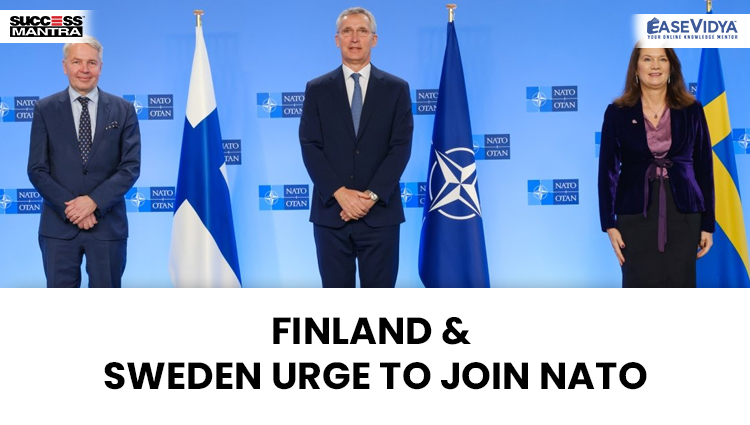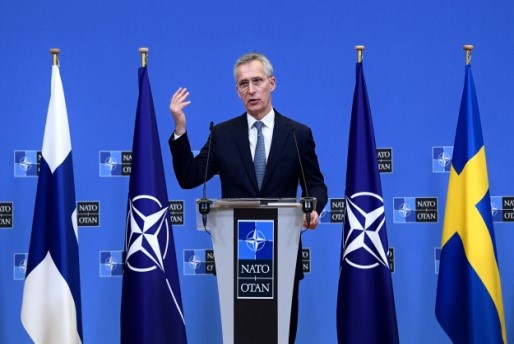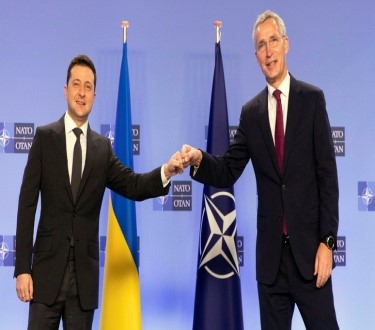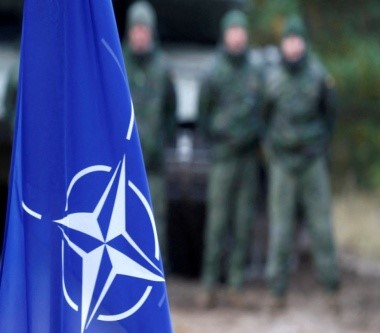
FINLAND AND SWEDEN URGE TO JOIN NATO
FINLAND & SWEDEN URGE TO JOIN NATO
Recently, Finland and Sweden have shown interest to join the North Atlantic Treaty Organization (NATO).
Why are Sweden and Finland Not NATO Members?
- Finland: It has stayed out of such alliances because it always wanted to maintain cordial relations with its neighbour, Russia. For a long time, the idea of not joining NATO or getting too close to the West was a matter of survival for the Finns. However, the change in perception and an overwhelming support to join NATO came about following the Russian invasion of Ukraine.
- Sweden: Unlike Finland, whose policy stance was a matter of survival, Sweden has been opposed to joining the organisation for ideological reasons.

What would a membership mean and will it benefit NATO as well?
Give Security Guarantee: Being a member of NATO will give the nations a security guarantee under the alliance’s “Article 5” on collective defence. The article essentially guarantees a military response and protection by NATO countries if any member of the organisation comes under attack. Finland’s geographical location plays in its favour as once it becomes a member, the length of borders Russia shares with NATO would double and it would also strengthen the alliance’s position in the Baltic Sea. Russia threatened to take military measures if the membership goes through and warned Finland to be aware of the consequences of this move.
Turkey: Turkey opposes Finland and Sweden joining NATO. The Turkish government claimed that it could use its membership in the Western alliance to veto moves to admit the two nations. The Turkish government cited Sweden and other Scandinavian countries for supporting Kurdish militants and other groups it considers terrorist.
Current Affairs Notes By Success Mantra Coaching Institute GTB Nagar Delhi CLICK HERE
RELATED: UKRAINE MEMBERSHIP OF NATO
The Ukrainian President urged the North Atlantic Treaty Organization (NATO) to speed up his country’s membership in the alliance. Ukraine hopes to be invited this year to join a NATO Membership Action Plan (MAP).
REASON FOR UKRAINE TO JOIN NATO
Ukraine is of the opinion that joining NATO is the only way to end fighting with pro-Russia separatists. There is an increase in clashes and Russian military movements on the border raise fears of an escalation of the separatist conflict in eastern Ukraine. Ukraine accuses Russia of massing thousands of military personnel on its northern and eastern borders as well as on the Crimean peninsula (annexed by Russia in 2014). Ukraine’s Western allies have rushed to its defence, with a series of statements warning Russia against taking further action. India did not join the Western powers’ condemnation of Russia’s intervention in Crimea and kept a low profile on the issue.

WHAT IS NATO?
North Atlantic Treaty Organization (NATO) is a military alliance established by the North Atlantic Treaty (also called the Washington Treaty) of April, 1949, by the United States, Canada, and several Western European nations to provide collective security against the Soviet Union. There are currently 30 member states. Its original members were Belgium, Canada, Denmark, France, Iceland, Italy, Luxembourg, the Netherlands, Norway, Portugal, the United Kingdom, and the United States. Joining the original signatories were Greece and Turkey (1952), West Germany (1955, from 1990 as Germany), Spain (1982), the Czech Republic, Hungary, and Poland (1999), Bulgaria, Estonia, Latvia, Lithuania, Romania, Slovakia, and Slovenia (2004), Albania and Croatia (2009), Montenegro (2017), and North Macedonia (2020). France withdrew from the integrated military command of NATO in 1966 but remained a member of the organization; it resumed its position in NATO’s military command in 2009.
- Headquarters: Brussels, Belgium.
- Headquarters of Allied Command Operations: Mons, Belgium.
WHAT ARE THE OBJECTIVES OF NATO?
- NATO’s essential and enduring purpose is to safeguard the freedom and security of all its members by political and military means.
- Political objectives: NATO promotes democratic values and enables members to consult and cooperate on defense and security-related issues to solve problems, build trust and, in the long run, prevent conflict.
- Military Objectives: NATO is committed to the peaceful resolution of disputes. If diplomatic efforts fail, it has the military power to undertake crisis-management operations. These are carried out under the collective defence clause of NATO's founding treaty - Article 5 of the Washington Treaty or under a United Nations mandate, alone or in cooperation with other countries and international organisations. NATO has only once invoked Article 5, on September 12, 2001 following the 9/11 attacks on the World Trade Center in the US.

WHAT ARE THE ALLIANCES OF NATO?
- NATO participates in three alliances that expand its influence beyond its 30 member countries.
- Euro-Atlantic Partnership Council (EAPC): It is a 50-nation multilateral forum for dialogue and consultation on political and security-related issues among Allies and partner countries. It provides the overall political framework for NATO’s cooperation with partner countries in the Euro-Atlantic area, and for the bilateral relationships developed between NATO and individual partner countries under the Partnership for Peace (PfP) programme.
- The Partnership for Peace (PfP) is a programme of practical bilateral cooperation between individual Euro-Atlantic partner countries and NATO. It allows partners to build up an individual relationship with NATO, choosing their own priorities for cooperation. Established in 1997, the EAPC succeeded the North Atlantic Cooperation Council (NACC), which was set up in 1991 just after the end of the Cold War.
- Mediterranean Dialogue: It is a partnership forum that aims to contribute to security and stability in NATO’s Mediterranean and North African neighbourhood, and promote good relations and understanding among participating countries and NATO Allies. Currently, the following non-NATO countries take part in the Dialogue: Algeria, Egypt, Israel, Jordan, Mauritania, Morocco and Tunisia.
- Istanbul Cooperation Initiative (ICI): It is a partnership forum that aims to contribute to long-term global and regional security by offering non-NATO countries in the broader Middle East region the opportunity to cooperate with NATO. Bahrain, Kuwait, Qatar and the United Arab Emirates currently participate in the Initiative.
PRAVAHINI Current Affairs Notes By Success Mantra Coaching Institute GTB Nagar Delhi CLICK HERE
TEST YOURSELF
Q.1 Apart from Ukraine, which of the following two countries have shown their interest to join the North Atlantic Treaty Organization (NATO) as members?
- Finland & Sweden
- Hungary & Poland
- Switzerland & Czech Republic
- None of the following
Q.2 From the given options, which of the following countries/nations can't be considered as the original member of NATO?
- United Kingdom
- Netherlands
- Norway
- Russian Federation: ANSWER
Q.3 Consider the below-mentioned options & state which of the following is the current Secretary General of NATO?
- Ingrid Schulerud
- Jens Stoltenberg: ANSWER
- Christian Wulff
- None of the above-mentioned
Q.4 Which of the following articles of NATO states that if one member of the alliance is attacked in Europe or North America, it is to be considered an attack on all members?
- Article 3
- Article 5: ANSWER
- Article 12
- None of the above
Q.5 Collective Security Treaty Organization a Military Alliance which was signed in May 1992 and aims at collective and national security is headquartered in ___________?
- Minsk, Belarus
- Nur Sultan, Kazakhstan
- Moscow, Russia: ANSWER
- Vladivostok, Russia













Clay
This iis very interesting, You're a very skilled blogger. I have joined your feed and look forward tto seeking more of your fantastic post. Also, I have shared your website in my social networks! http://Boyarka-inform.com/
Boyarka-Inform.com
Very nice post. I just stumbled upon your weblog and wished to say that I've truly enjoyed surfing around your blog posts. In any case I will be subscribing to your rss feed aand I hhope you write again soon! http://boyarka-inform.com/